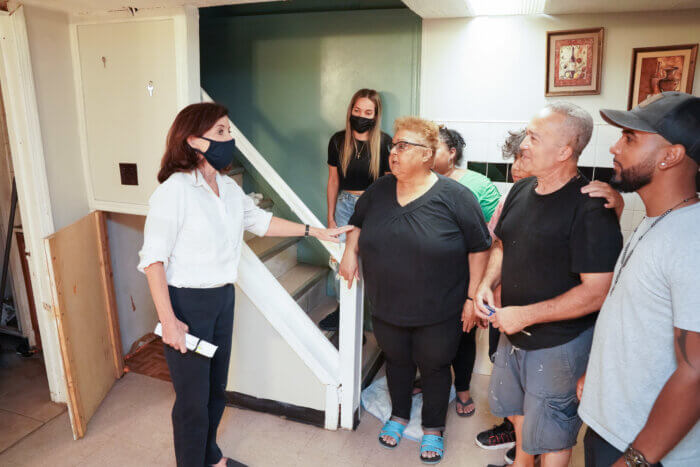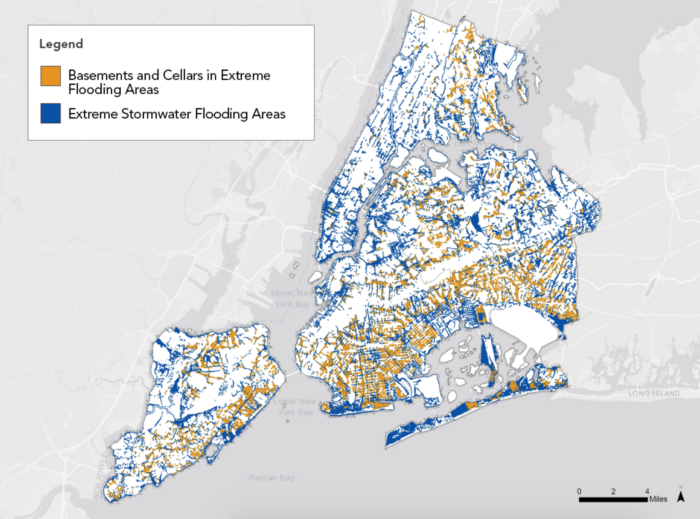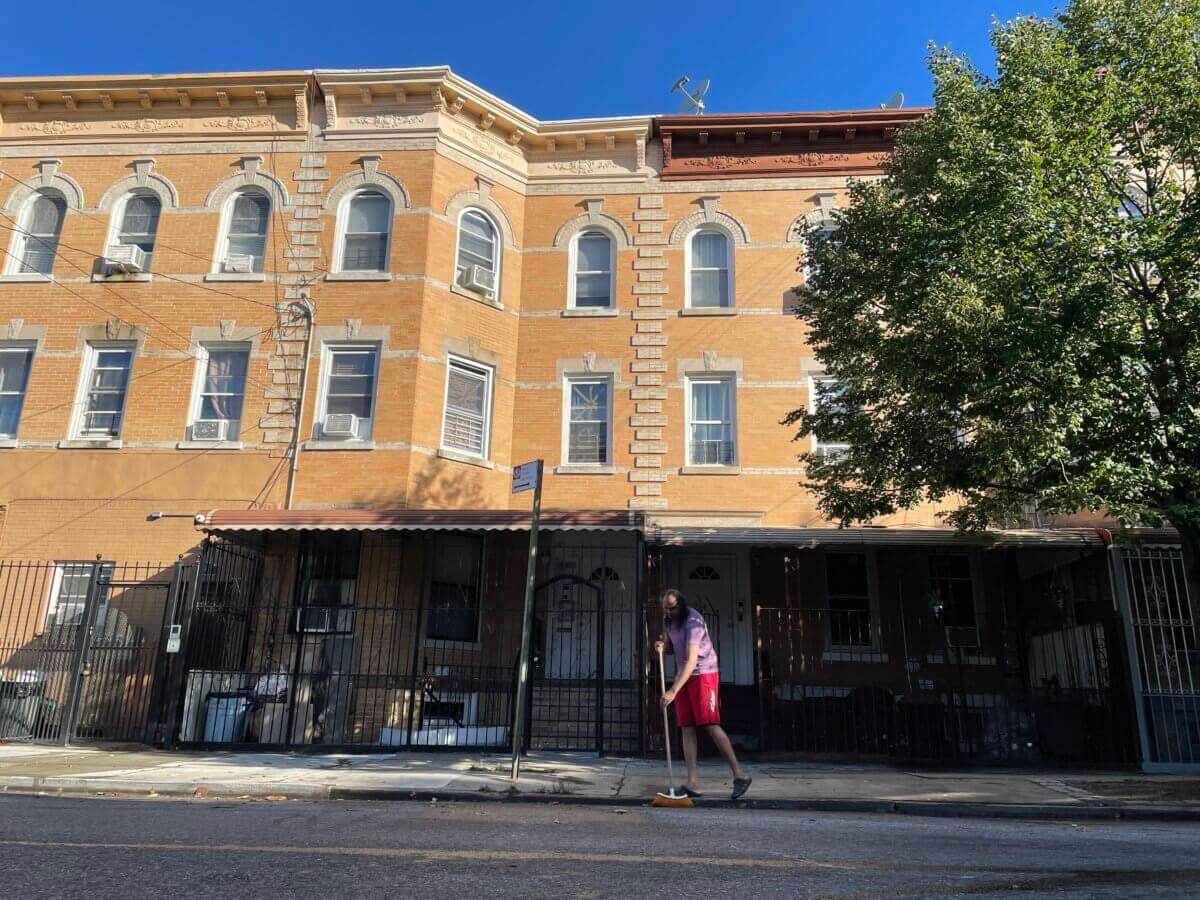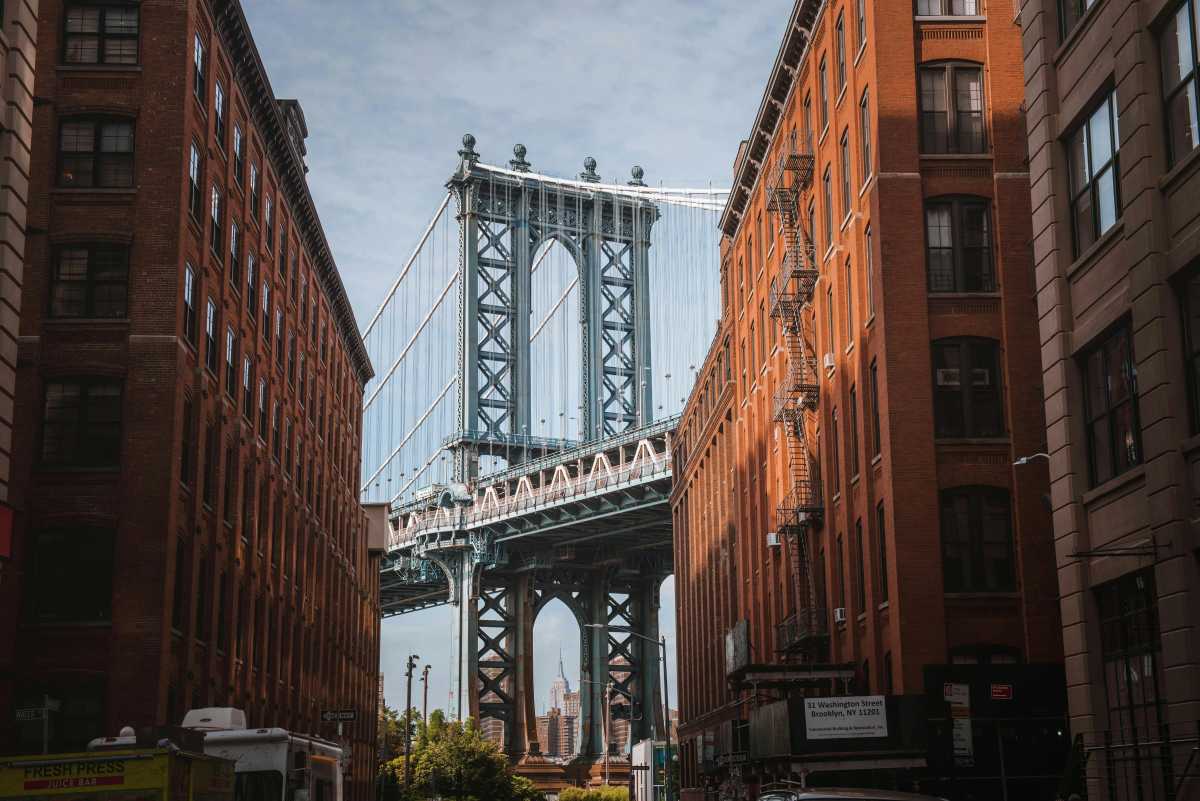Three years into a pilot program launched in East New York to convert illegal basement apartments into safe and regulated dwellings, the scheme has shown minimal progress, according to a new report.
Tens of thousands of New Yorkers live in basement units, most of which are not legal residences under local law.
As a result, many are unsafe to live in because homeowners can’t get permits to make changes to illegal dwellings, landlords who would like to make their basement units safer are barred from doing so.
Making matters worse, tenants have no standing to take action against landlords if their homes aren’t up to snuff.
In 2019, the city created the Basement Apartment Conversion Pilot Program to help low-income homeowners in East New York and Cypress Hills renovate their below-ground units with financial and technical assistance from the city.
More than 8,000 homes were initially identified as potential candidates, and just over 100 made it through several rounds of eligibility screening by the city’s Department of Housing Preservation and Development and its partners, including the Citizens Housing Planning Council.
But as of May 2023, just one home is actively undergoing construction to renovate its underground unit, and only five are enrolled in the program at all, according to CHPC’s interim report.
State regulations block legal conversions
City and state regulations regarding density, ceiling height, and even the number of parking spaces required for a given home have prevented thousands of other nearly-eligible homeowners from enrolling in the program, per the report.
“We have learned a great deal,” said CHPC executive director Howard Slatkin. “Would we want to have many more buildings in the pilot program right now? Absolutely. But we’ve identified the very specific kinds of regulatory obstacles that we’re facing and some strategies to get past them.”
One of the most significant obstacles facing the pilot is the state’s Multiple Dwelling Law, which tightly regulates conditions in rental units. Some of the law’s stipulations — like the number of fire escapes or windows a unit must have — are necessary for tenant safety.
But some, like mandates regarding the ceiling height of a basement unit, are only standing in the way.
Under the pilot program, basement apartments are required to have ceilings at least 7’6” high — which, in many cases, would require homeowners to excavate several inches of dirt from below their homes, which can cost hundreds of thousands of dollars.

Per the report, those slightly higher ceilings don’t “appreciably improve safety,” but the regulation did disqualify dozens of homes from participating in the pilot program.
It’s not about fixing the Multiple Dwelling Law, Slatkin said, but aligning regulations to give the city the “key” to opening the door to successful basement apartment conversions.
Lawmakers have repeatedly proposed making changes to the law — last year, state Sen. Brian Kavanagh, who used to represent Brooklyn — introduced a bill that would pave the way for legal, affordable conversions.
Gov. Kathy Hochul even voiced her support for changes in her ambitious housing proposal earlier this year, but none of the proposals have panned out.
There has been hesitation and misunderstanding of the need for reform in Albany, Slatkin said. Most lawmakers say they’re just concerned about safety — and safety is also a top priority for the pilot program, he said.
“The least safe thing is letting these buildings continue to languish in these sort of gray areas of regulation with unsafe conditions persisting,” he said. “We don’t know when the next big storm is going to blow through and cause problems that we just haven’t given people the tools to protect themselves from.”
New Yorkers at risk in illegal basement apartments
Hurricane Ida brought the risks of the city’s subterranean apartments into shark relief in 2021, when 11 people died in flooded basement units. One of those victims, Robert Bravo, died in a Cypress Hills unit owned by his brother.
Based on census data, research and advocacy groups estimate there are more than 100,000 basement units housing up to 500,000 people across New York City. Many are at risk of extreme flooding during intense storms, per the city comptroller’s office.
A 2021 report by the Pratt Center found that the bulk of those units are concentrated in just eight community districts, many of which have higher-than-average poverty rates and significant populations of immigrants and people of color.
Five of those districts are in Brooklyn. Nabes including Canarsie, Prospect Lefferts Gardens, and East Flatbush have thousands of basement apartments each.

East New York has the most underground units in the entire city — an estimated 5,086, per the report. Most residents are low-income New Yorkers who cannot afford market-rate apartments, especially as rents in Brooklyn reach historic highs.
A large number of homeowners who rent their basement units out are also low-income, and are either unaware that the apartments are unsafe or cannot afford to make the necessary changes.
“Often these property owners are immigrant families renting to immigrant families, people who are struggling to make ends meet themselves,” Slatkin said. “They’re not holding companies.”
The report recommended the state pass legislation that would allow the city to modify the Multiple Dwelling Law and expand HPD’s ability to grant loans to homes enrolled in the pilot program. A cap on HPD’s current loan capabilities meant the department could not provide enough financial assistance to some homeowners who would have needed to make pricey improvements to their units.
In turn, the report says the city should change its zoning laws to allow for the expansion of the pilot program — and eventually create a citywide basement conversion plan.
For now, HPD and its partners in the pilot program will continue work on the single home with construction already underway and move forward with construction on the four other houses that qualified for the program, Slatkin said.
“We are very hopeful for state and local regulatory changes … that can provide relief and a path toward legalization for buildings that contain basement apartments long term,” Slatkin said. “We’re talking about thousands of people who actually live in these apartments, who need a way forward.”
























